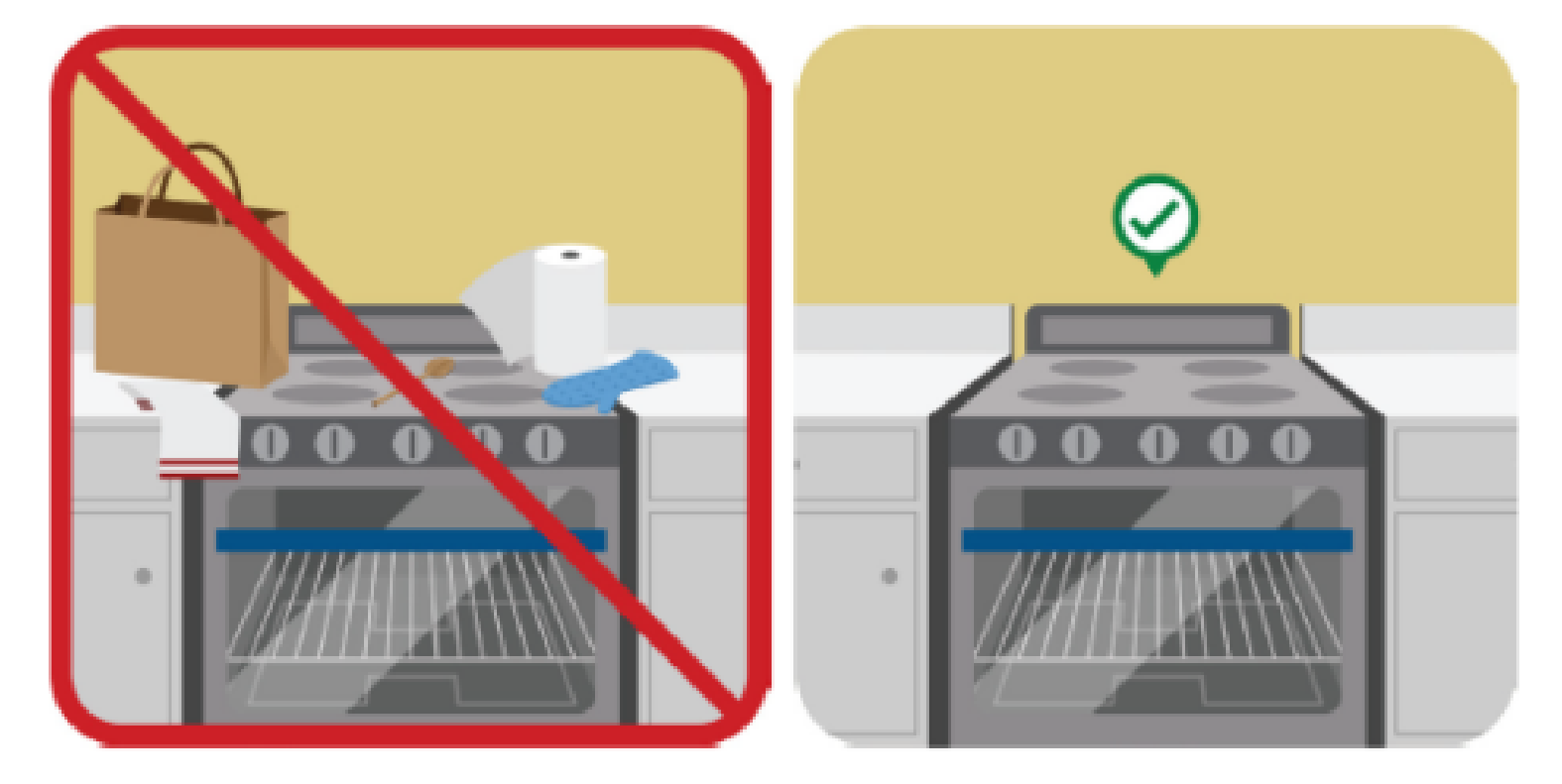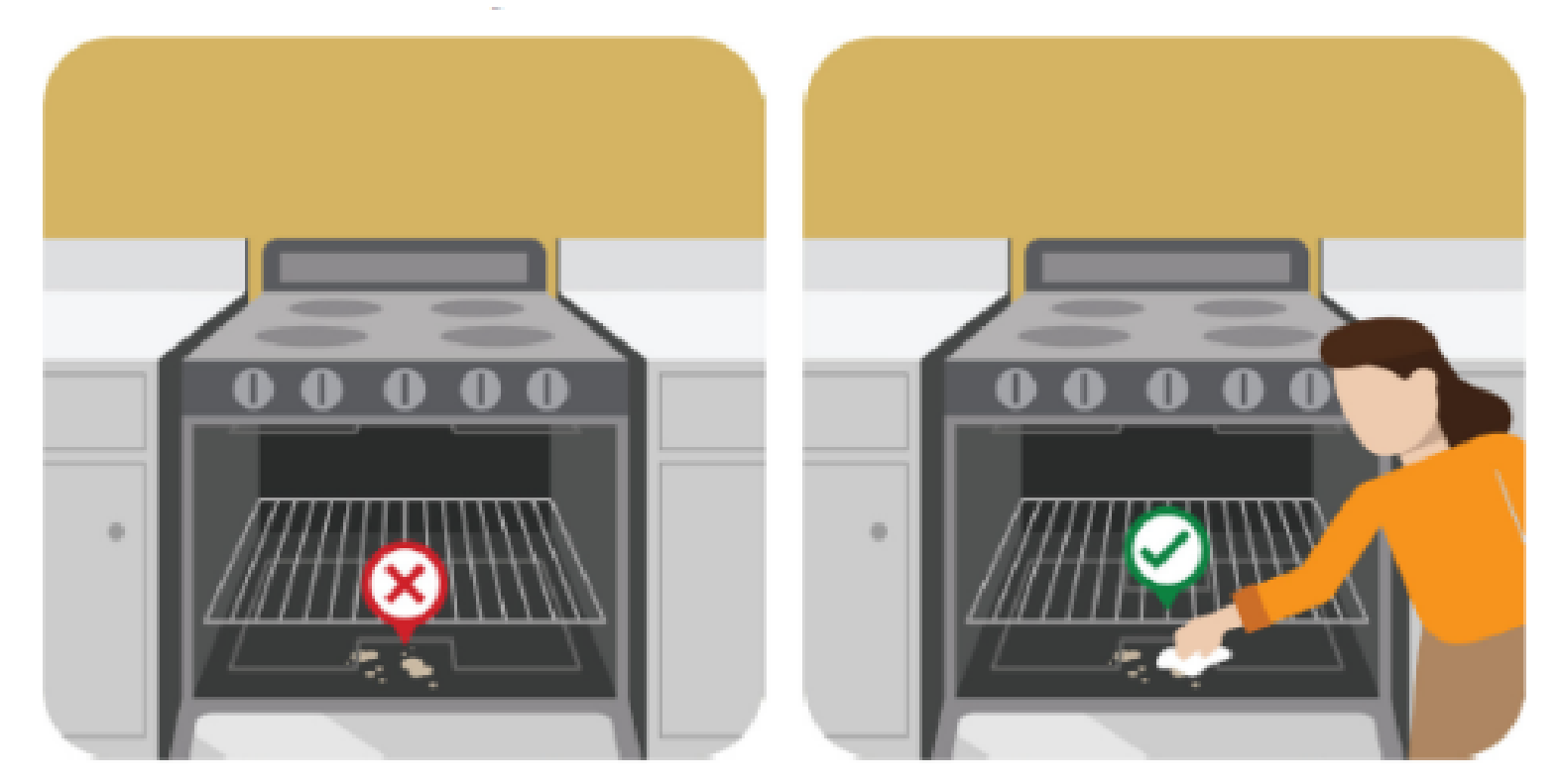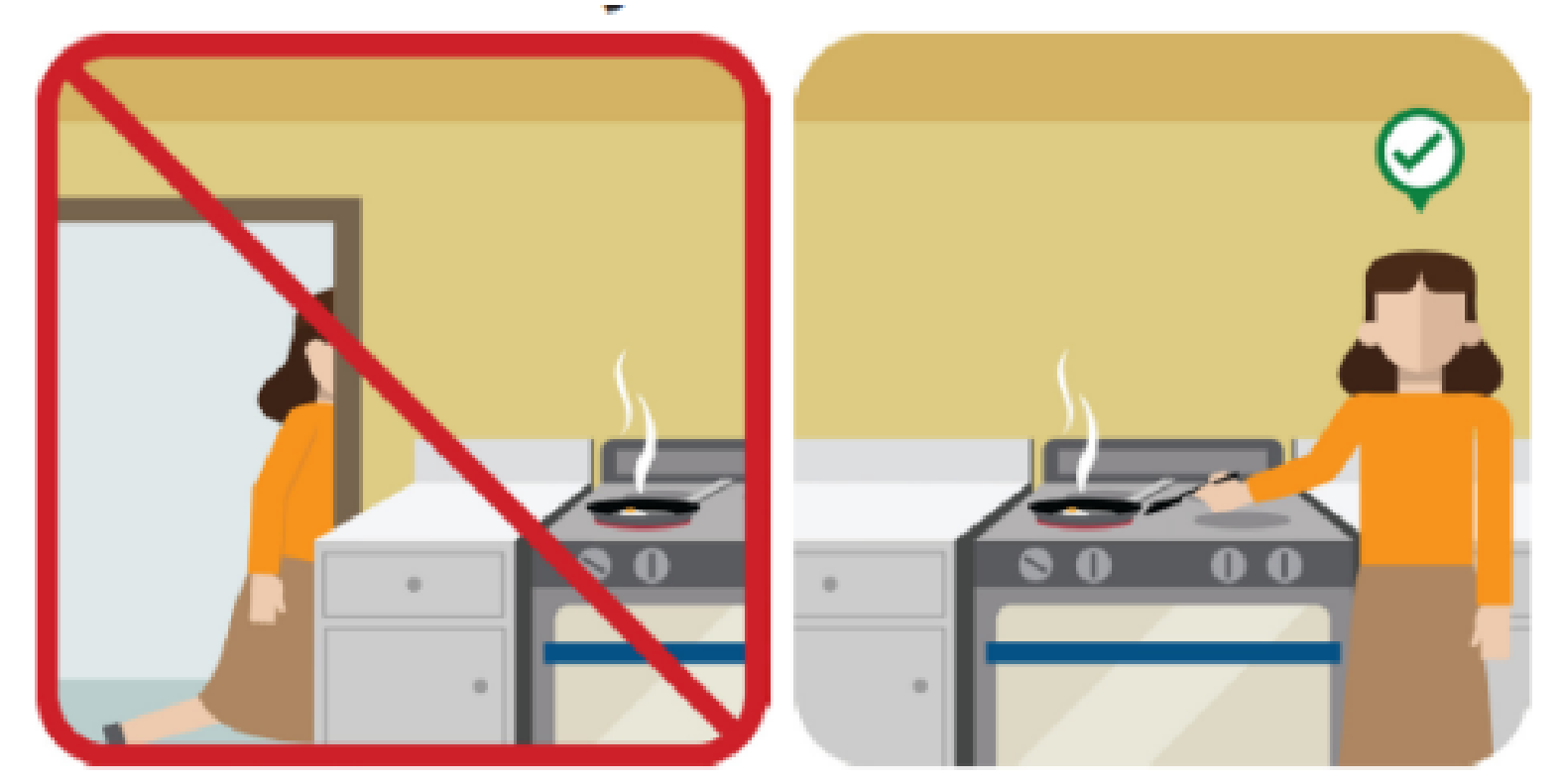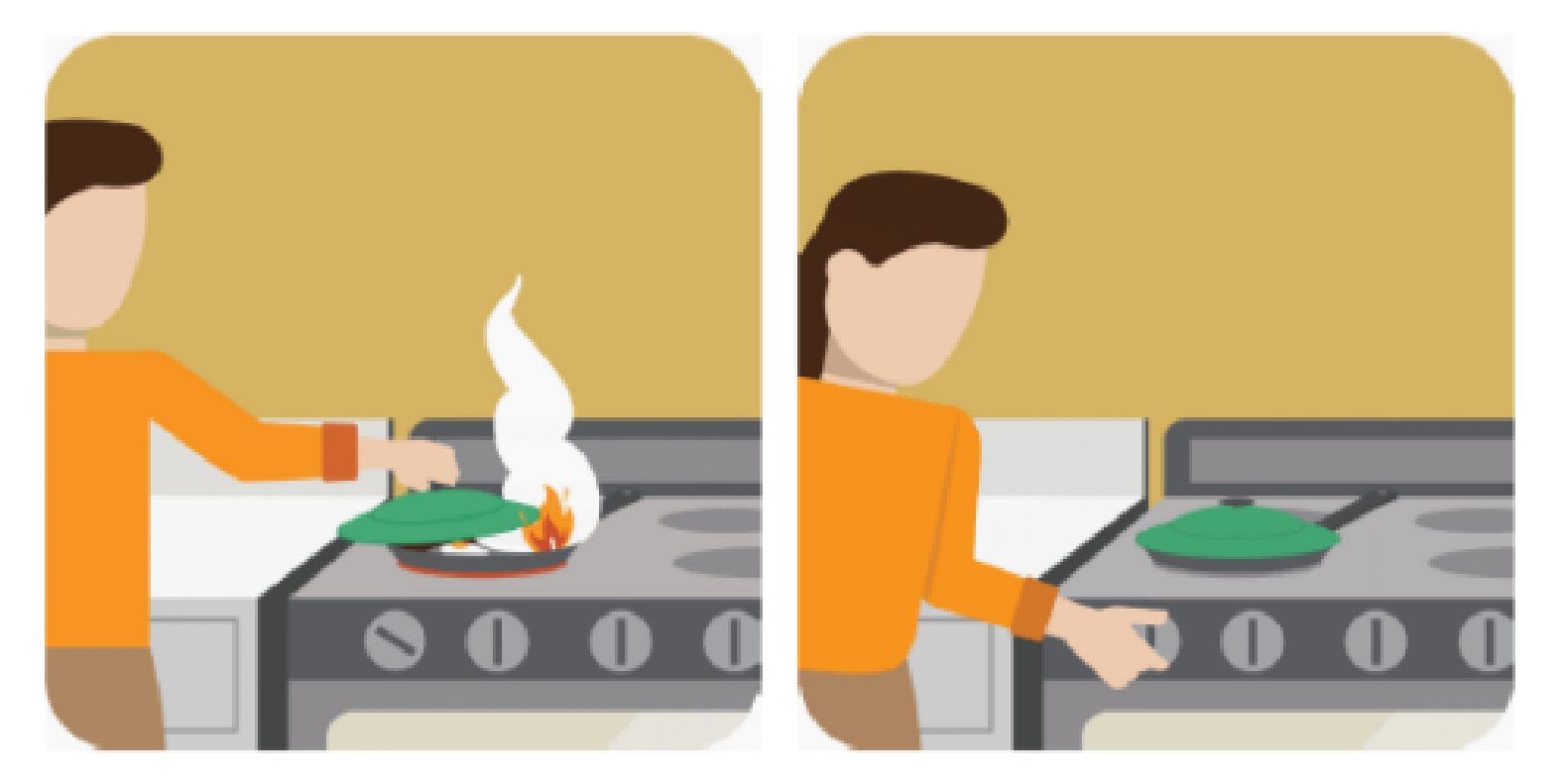Whether preparing for a family dinner or a quick snack, practicing safe cooking behaviours can help keep you and your family safe.
- Stay in the kitchen when frying, grilling or broiling food. If you have to leave the kitchen, even for a second, turn off the stove.
- Check your food regularly while cooking.
- Use a timer so you’ll remember that the stove or oven is on.
- Stay alert. If you’re sleepy, fatigued or under the influence of alcohol or drugs, it’s best to avoid cooking.
- Wear short, close-fitting or tightly-rolled sleeves while cooking. Loose clothing can hang down, make contact with hot surfaces and catch fire.
- Keep children away from the cooking area. Enforce a “kid-free zone” and make them stay at least three feet away from the stove.
- Keep your cooking area free of anything that can catch fire, such as food wrappers, pot holders, oven mitts, wooden utensils, paper or plastic bags, food packaging, towels or curtains.
- Built-up grease can catch fire in the oven or on the stovetop. Clean your stove’s cooking surfaces regularly to prevent grease buildup.
- Consider purchasing a fire extinguisher to keep in your kitchen. Having an extinguisher nearby is important, but you also need to have the correct type and know how to use it properly.
- Always check the kitchen before going to bed or leaving home to make sure the stove/oven and all small appliances are turned off.
- Never throw hot grease in the garbage as it can cause a fire. Be sure to let it cool and dispose of it in an empty can.




